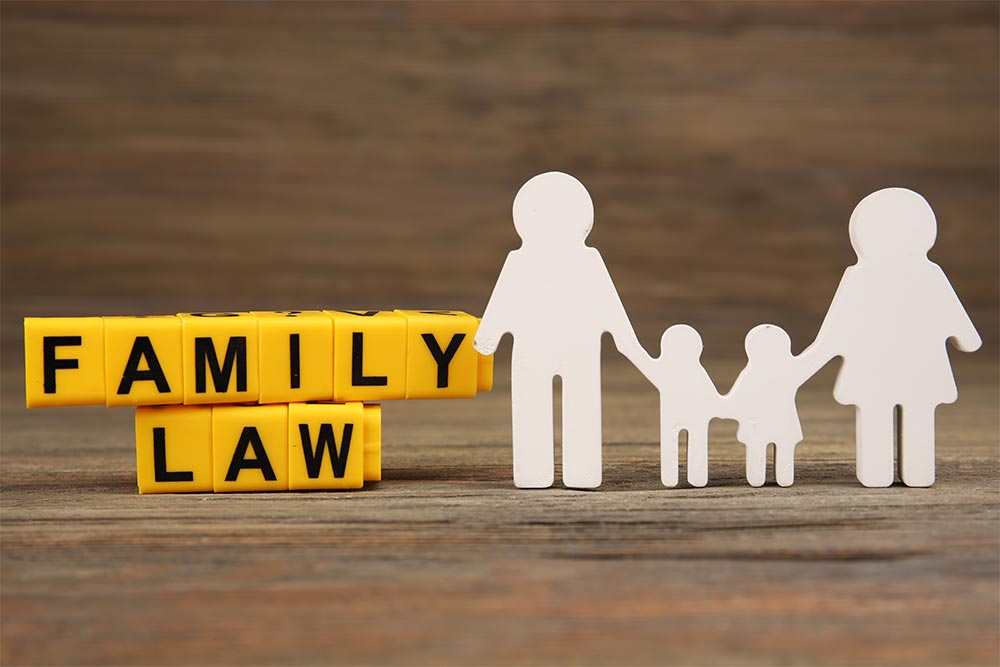Family law is a law which comprises of all the legal matters relating to families or other personal relationships. It includes the legal issues that arise in a family such as Inheritance, Adoption, Marriage, Divorce, Partition, etc.
All the rights and responsibilities of relationships in a family and the stratified arrangement of rules are encompassed by the family law.
Getting brief into family law
There are various religions practiced in India which include Hinduism, Islam, Christianity, Jainism, Buddhism, etc. The ceremonialism of marriage is different in every religion.
All the laws of different religions are derived from their religious texts. Various amendments have been given to these laws as time passed.
So basically, all the matrimonial laws in India are governed by personal laws of the parties depending on that religion such as:
- For Hindus: Hindu Marriage Act 1955.
- For Christians: the Indian Christian Marriage Act 1872 and Divorce Act 1869.
- For Muslims: It is a part of Muslim Act.
- For Parsi: Parsi Marriage and Divorce Act 1869.
There is also a Special Marriage Act 1954 which is for every religion. This is civil legislation and people of every religion can marry under it and for divorce, the same act is applied. Except for Jammu and Kashmir and Goa, this law is applied throughout India.
Hindu law

This Law applies to all forms of Hinduism (for example Brahmo, Virashaiva, etc.) including offshoots of Hindu religion which has been specified under Article 44 of the Indian Constitution. The act is applied to even those who are permanent residents of India but are not Muslim, Christian, Jew or Parsi by religion.
Conditions Of Marriage:
There are a few points which have to be noticed under the marriage act:
- The Bridegroom should be of least 21 years of age and bride of 18 years.
- Both bridegroom and the bride should belong to the Hindu religion at the time of marriage.
- A marriage can only be solemnized if neither party has a living spouse at the time of marriage.
- The parties are within the decree of a prohibited relationship.
- The marriage annulled if the following points meet:
- The bride was pregnant by another man other than the bridegroom at the time of marriage.
- If one party did not willingly consent or suffers from any mental problems, it would be believed that consent was not given.
- Unable to consummate the marriage, impotent or unfit for the procreation of a child.
Ceremonies:
A Hindu marriage may be solemnized in accordance with the customary rites and ceremonies of either the bride or the groom. It all comes under Section 7 of the Hindu marriage act.
Registration Of Marriage

A ceremony should be performed and both the parties should be living as husband and wife. After registration, a couple has to reside within the district of marriage officer for 30 days.
Divorce
A marriage may be dissolved by court order on the following grounds:
- The respondent has had voluntary sexual intercourse with a man or a woman other than the spouse after the marriage.
- The respondent has physically or mentally abused the petitioner.
- The respondent has deserted the petitioner for a continuous period of not less than two years.
- The respondent has ceased to be a Hindu and has taken another religion.
- The respondent has been diagnosed since the marriage ceremony as being unsound of mind to such an extent that normal married life is not possible.
- The respondent been diagnosed with an incurable form of leprosy or has a venereal disease in a communicable form.
- The respondent has not been seen alive for seven years or more.
- No resumption of cohabitation after a decree of judicial separation for a period of at least one year.
- A wife may also seek a divorce on the following grounds:
- The husband was already married and that any other wife of the husband was alive at the time of the marriage ceremony.
- The husband, after marriage, has been found guilty of rape, sodomy or bestiality.
- The wife was under-age when she married and she repudiates the marriage before attaining the age of 18 years.
- Co-habitation has not been resumed within a year after an order for maintenance under Section 125 of the Criminal Procedure Code or alternatively, under the Hindu Adoptions & Maintenance Act 1956.
See more- Divorce Laws in India Under Different Religions
Remarriage
If a marriage has been dissolved by a decree of divorce and no longer able to be appealed, remarriage is possible.

